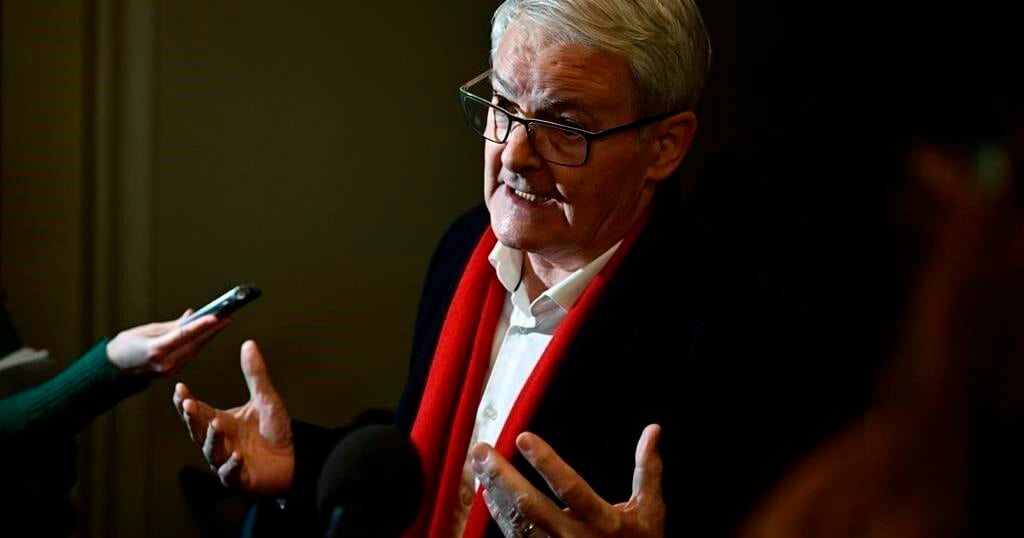Marc Garneau had already been strapped into his seat aboard the space shuttle Challengerfor two hours before hearing the countdown that would make him Canada’s first man in space.
Ten … nine … eight …
“Am I ready for this?” he recalls thinking 40 years ago. “You know that this is the beginning of something. All of Canada was looking.”
Seven … six … five …
“Did I tell my wife and my children that I loved them?”
Four … three … two … one …
Blast off!
“Eight-and-a-half minutes of a rock ‘n’ roll ride,” he said. “Life is not a totally safe experience.”
Everything changed for Garneau after that Oct. 5, 1984 ascent, from his attitude toward risk to his attitude toward Earth. And Canadians, he said, woke up to a new reality: that their country was not only a participant in the race to space but a pacesetter.
Garneau reflects on that historic day – and his journey from space to politics – in his memoir “A Most Extraordinary Ride,” released Tuesday by Signal, an imprint of Penguin Random House Canada.
“Most Canadians knew not very much about the Canadian space program,” Garneau, 75, said in a recent interview.”They were not aware that we were the third country to have a satellite in space.
“They were really not aware that Canada was a leader. I’ve used the last 40 years to point out … we are a space leader.”
Garneau has done much more than that, including holding federal cabinet positions in Justin Trudeau’s Liberal government before retiring from politics last year. Before he became one of the first six Canadians to enter NASA’s astronaut program, the Quebec City native had earned a doctorate in electrical engineering and had a long career in the Royal Canadian Navy.
Buthe saidnothing compares to the intensity of sitting in the space shuttle’s cabin, uncomfortably vertical, withoutmuch to do except think about the 44 million horsepower under his seat and the great unknown he was about to enter.
“The kinds of things you think about are wide-ranging. I was wondering what was going through (my family’s) minds,” he said.
“I’d trained hard but I knew that all of Canada was looking. Was I going to be able to live up to those expectations and make Canada proud? If I screw this up, this is not going to be a good confidence-builder in NASA for future Canadians.”
Not only did he did make Canada proud, he built enough confidence that NASA flew him to space twice more and welcomed aboard other Canucks, including Roberta Bondar and Chris Hadfield.
Likemany astronauts, Garneau’s view of the world was changed by the space shuttle’s view of the world – a bright blue marble floating in airless emptiness.
“The first view out the window is seared into my brain,” he said. “Over the period of my three flights I changed the way I see Earth. I see Earth from a global perspective.”
Three hundred kilometres above the planet, circling it every 90 minutes, Garneau watched vast clouds of smoke from a burning Amazon rainforest. He saw plumes of sediment washing into the Mediterranean Sea from spreading deserts. He saw veils of yellow-brown smog over China, California and Lake Erie.
“When you see that thin atmosphere and realize we’re filling it with greenhouse gases and pollutants …when you see these things, you realize, ‘What are we doing?'” he said.
“If we don’t take care of this planet, there is nowhere else to go.”
Garneau remains proud of Canada’s contributions to space, from the Canadarm robotic arms to the guidance system on the James Webb Space Telescope.
But he warns that technology oncedominated by a few countries is now becoming a crowded marketplace. Canada has to keep up, he said.
“We started out gangbusters,” he said. “We are well respected in the world but guess what, other countries are putting a huge priority on their space programs.”
South Korea, for example, now builds not only its own satellites but its own launch vehicles.
“There’s kind of a space race going on now,” he said. “That’s a good thing, because there’s so many good things that can be done in space to serve humans back on Earth.”
Garneau said Canada has to stick with the spirit that he found sitting in his astronaut’s chair, waiting to boldly go.
“After flying in space, life was not as intimidating for me. It gave me a sense of confidence and it gave me confidence to move forward in life instead of playing it safe.”
This report by The Canadian Press was first published Oct. 8, 2024.
